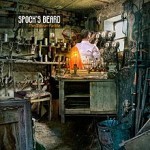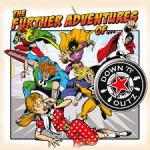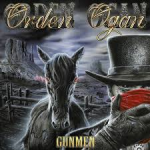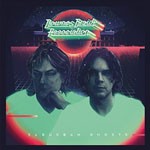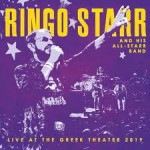Share the post "Interview: 10Q’s with author ROBERT SHORE"
Robert Shore is the author of the rather good book on the Midlands ‘Bang In The Middle’ published by the Friday Project/Harper Collins. What’s more he is a big fan of metal and the NWOBHM and if you read his book you will see why Metallica owe it all the Midlands…
1. What sparked the idea to write the book on the glory of the Midlands that is represented in ‘Bang In The Middle’?
In part it was reading a travel feature entitled ‘Places That Suck’ and finding the East Midlands prominently positioned at the head of the list. ‘How dare they? I love the East Midlands!’ I thought to myself, but it made me realise that the clichés relating to the region are generally fairly negative. Not like the North (a theme in the book).
And in part it was a question from my five-year-old son. His teacher had asked him to find out about where his parents were from. His mother is a Parisian and, as a Midlander, I wanted to be able to offer him a cultural inheritance on my side to match all those cool French philosophers and Nouvelle Vague filmmakers.
And that’s basically the challenge I set myself: to explore what it means to be a Midlander and to write about what wonders the Midlands has given the wider world. The answer (I wasn’t entirely expecting it, I confess) turned out to be: pretty much everything, from balti, Stilton and crisps to evolution, gravity and parliamentary democracy.
2. Why is it do you think that the Midlands gets overlooked so much apart from say Midlands Today on BBC1?
It’s a national conspiracy, obviously. I’m joking, of course, but I do sort of mean it too. I think there are two main reasons for the general neglect of the Midlands: in the first place, a lack of regional identity among Midlanders (Northerners are much more likely to identify themselves as such, which helps a lot when you’re trying to persuade other people that there’s really such a thing as ‘Northernness’); and second, a lack of the means of production – there are very few publishers and independent radio and TV production companies in the Midlands. The North has a lot more – not to mention the new MediaCity in Salford – and consequently can make itself heard much more readily at a national level.
3. The book is a mixture of facts about famous Midlanders and key towns/cities which you visited as more of a travelogue. How did you decide which places to visit and was Stoke really as bad as your mum seemed to make out?
In terms of the tour itinerary, the idea was to head for the bigger cities, going in a clockwise direction from my home town of Mansfield – so to Nottingham, Leicester, Northampton, Coventry, Brum, Stoke – and taking in some of the prettier (and not-so-pretty) bits in between. That seemed to make sense because the history is concentrated in the more populous areas, and the book is supposed to offer something of a humorous history lesson.
On the subject of Stoke: it has an amazing heritage but I think it’s fair to say that its layout is a bit perplexing for the first-time visitor. I read somewhere that it has a notably low density of college grads but I swear you need a degree in geography just to find your way to the city centre! It’s true that my mother wasn’t very impressed initially but she changes her mind a lot and has since decided that it was actually very nice…
4. How has the book been received so far by critics and readers? Have you been on any book signings or related events?
The book garnered a bit of press, mostly on the basis of the challenge it throws down to the idea of the ‘North/South divide’. To hear the way most national news is reported you’d think there was nothing and nowhere in between the North and the South of England! We are completely dominated by the binary North/South model, as anyone who’s driven past Leicester on the M1 (it’s in ‘The NORTH’ apparently) will attest! Anyway, that line of argument got me onto the Today programme on Radio 4 and into The Sun, where they ran a ‘Quiz To See How Midlands You Are’. I was quite proud of that.
5. I notice on your blog you are reading books by Midlands authors and indeed some are mentioned in the book like Arnold Bennett (another blatant plug for Stoke!). Would a follow up book on the literary richness of the Midlands be a next step maybe?
I’m currently trying out a new reading practice – ‘Reading-as-a-Midlander’ – which basically involves systematically noting down references to the Midlands in any books and other publications I read. It’s very illuminating (and slightly comical): most references – and there aren’t that many, compared to the North and South of the country – are disparaging.
But yes, there ought to be a study of Midland literature because basically everything of any literary value was written in the Midlands. I’m exaggerating for effect when I say that but again I’m not entirely joking: the Beowulf poet, Shakespeare, D.H. Lawrence, Arnold Bennett (even though he did call himself a ‘Man of the North’ – grrr) – we have an incredibly rich literary heritage.
6. In the book there is a decent amount given over to music, most notably heavy metal. How did you first become a fan of rock and metal music?
What was the first album you bought and band you saw live? I have an older brother and he first introduced me to hard rock. Growing up in the Midlands made it a natural enough choice: after all, this was the birthplace of metal! First gig: AC/DC on the Back in Black tour. First album: Live and Dangerous by Thin Lizzy. Phil Lynott was my absolute idol. When he died I stopped listening to rock music for several years. It turns out – despite that Dublin accent he put on – that Phil was actually a Midlander, born in West Bromwich.
7. Despite now liking jazz you still proudly mention Motorhead. What do you think makes them so special as a live band? Have you ever met any of the band?
With the exception of Fats Waller (about whom Phil Lynott wrote a song, so there’s a distinct rock lineage there anyway), I mostly like really noisy jazz: I can’t imagine anyone who loves Metallica or Black Sabbath not enjoying Peter Brötzmann’s classic 1968 album Machine Gun, for instance. It’s one of the most pleasurable ways to give yourself a headache I know.
Alas, I have never met Lemmy or any of the other members of Motörhead. I did once interview Glenn Hughes, though, and I was very impressed that he named one of his recent bands in honour of his native West Midlands - Black Country Communion.
8. The NWOBHM saw a fair few bands emerge from the Midlands and are also mentioned in your book. Which bands did you like and do you still listen to any of them nowadays?
I came to musical consciousness as NWOBHM reached its peak, so those bands – Iron Maiden, Def Leppard, Saxon, Girlschool – defined my youth in many ways. My favourites, Diamond Head, were from the Midlands, naturally. Metallica nicked their moves (they were largely a Diamond Head covers band at the outset) and stole their crown. I still listen to a lot of rock music, although the production on most NWOBHM albums can make them hard going now. You had to be there.
9. What made you want to take up writing and any advice for budding writers and those keen to write a book?
I wanted to be a journalist when I was a child (not sure where the idea came from – that’s not at all what my parents did) so that’s the path I followed after school. Interviewing people – because they do a certain kind of work, have had particular kinds of experience, etc – can be a great source of knowledge and inspiration, and mobile phones provide you with most of the technology you need to record and archive the results. I’ve always found it a great way to start or enrich a project. In terms of getting published: don’t give up at the first (or thirtieth) rejection; think laterally.
10. Anything else to add…
Up the Midlands!
Featured Artist: JOSH TAERK
Since early 2020 Josh has been entertaining us with exclusive monthly live sessions,
Check out videos here: https://www.facebook.com/getreadytorockradio
Upcoming sessions:
February 15
March 8
April 12
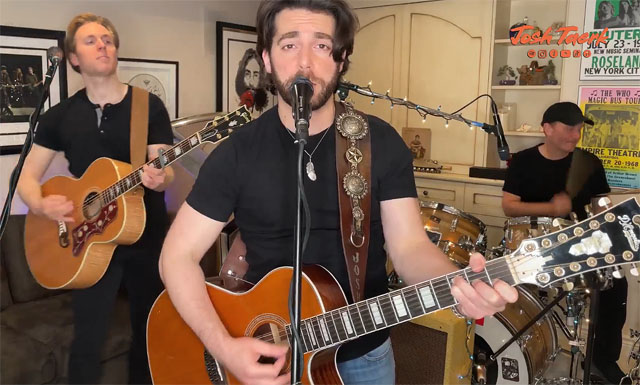
David Randall presents a weekly show on Get Ready to ROCK! Radio, Sundays at 22:00 GMT, repeated on Mondays and Fridays), when he invites listeners to ‘Assume The Position’. The show signposts forthcoming gigs and tours and latest additions at getreadytorock.com. This “Best of 2025 reviewer choices” show was first broadcast on 21 December 2025.
UK Blues Broadcaster of the Year (2020 and 2021 Finalist) Pete Feenstra presents his weekly Rock & Blues Show on Tuesday at 19:00 GMT as part of a five hour blues rock marathon “Tuesday is Bluesday at GRTR!”. The show is repeated on Wednesdays at 22:00, Fridays at 20:00). Pete’s Best of 2025 was first broadcast on 23 December 2025
How to Listen Live?
Click the programming image at the top of the page (top right of page if using desktop)
Get Ready to ROCK! Radio is also in iTunes under Internet Radio/Classic Rock
Listen in via the Tunein app and search for “Get Ready to ROCK!” and save as favourite.
More information and links at our radio website where you can listen live or listen again to shows via the presenter pages: getreadytorockradio.com
Power Plays w/c 26 January 2026
JOANNE SHAW TAYLOR Hell Or High Water (Journeyman Records)
TY FREEMAN One Way Love (indie)
GREY DAZE Monster You Adore (indie)
HOKKA Death By Cupids Arrow (Nuclear Blast Records)
PURPLE DOTS Stared At The Sun (Kycker)
SAINT AGNES Song For Mia (Spinefarm)
STREETLIGHT Shake That Feeling (Frontiers)
Featured Albums w/c 26 January 2026
09:00-12:00 The Best of 2003 – 2025 (Melodic Rock)
12:00-13:00 The Best of 2003 – 2025 (Melodic Hard Rock)
14:00-16:00 The Best of 2003 – 2025 (Singer Songwriter)
Our occasional Newsletter signposts latest additions to the website(s). We also include a selection of recent top albums, based on GRTR! reviewer ratings. The newsletter is sent out a few times a year.
If you’d like to register to receive this occasional mailing please complete the form:
If using a smartphone/tablet please tap here or re-orientate your device
(Note that this registration is separate from site registration which allows you to leave comments and receive daily emails about new content. If you wish to register for this – in addition or separately – please click or tap here – for more information – the form is at the foot of each page. Please read our privacy policy when opting-in to receive emails.
Recent (last 30 days)
Share the post "Interview: 10Q’s with author ROBERT SHORE"

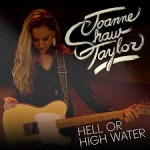
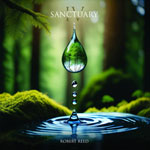
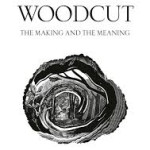
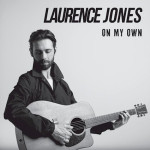
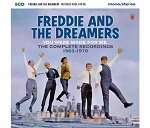
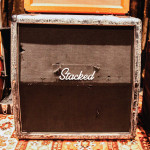
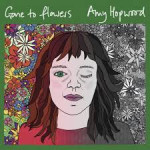
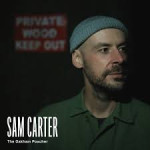
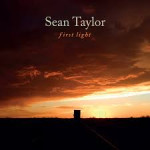
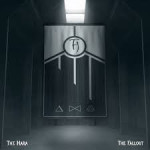
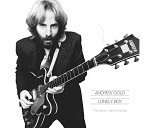
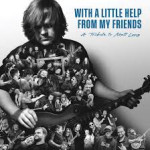

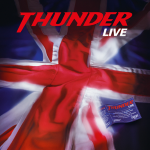
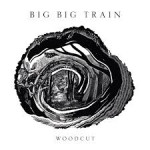
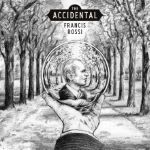
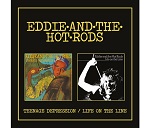
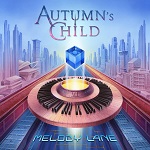
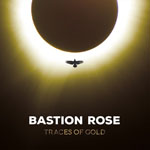
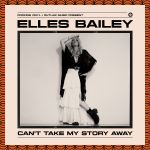

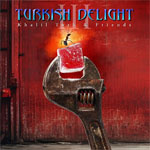

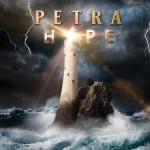

 PDF - you can delete unwanted sections
PDF - you can delete unwanted sections

















